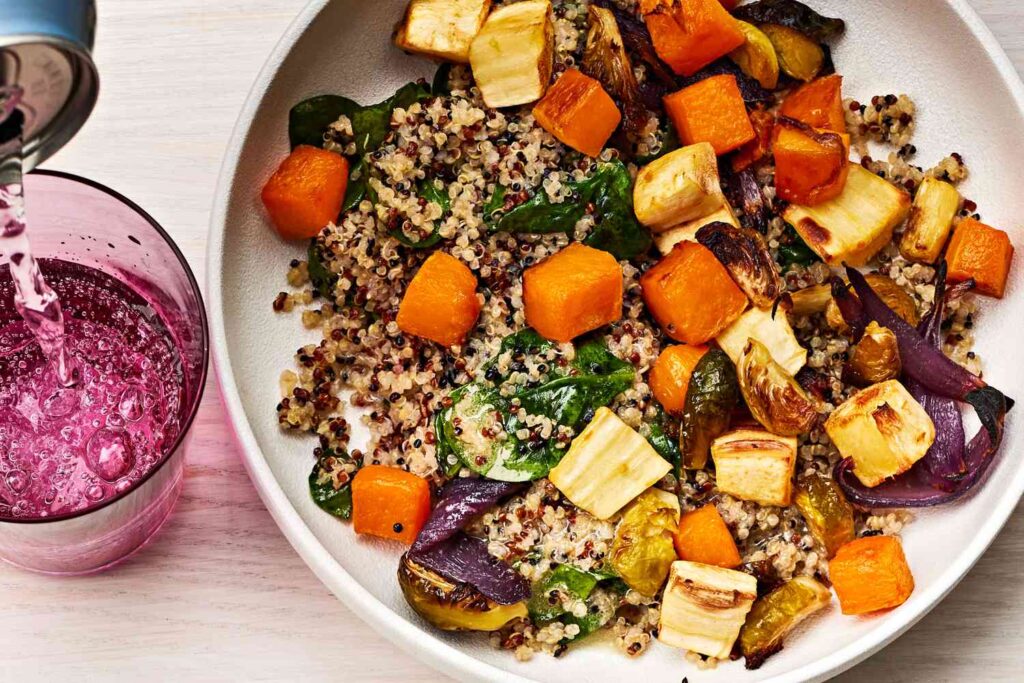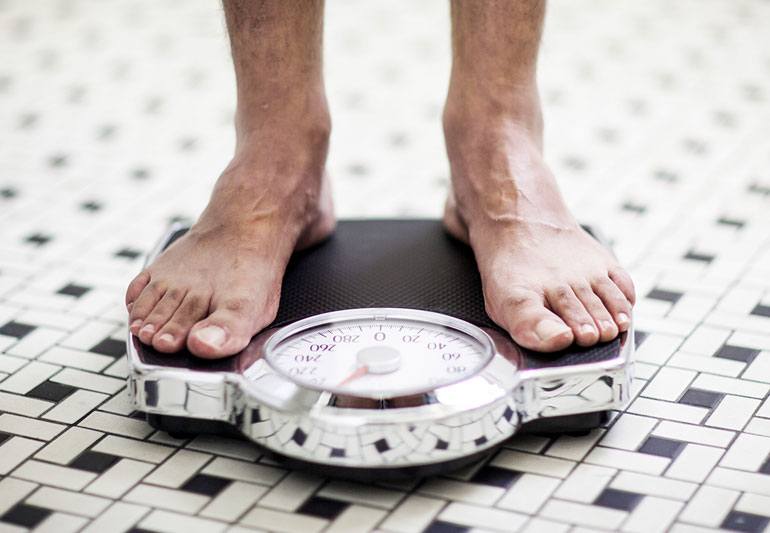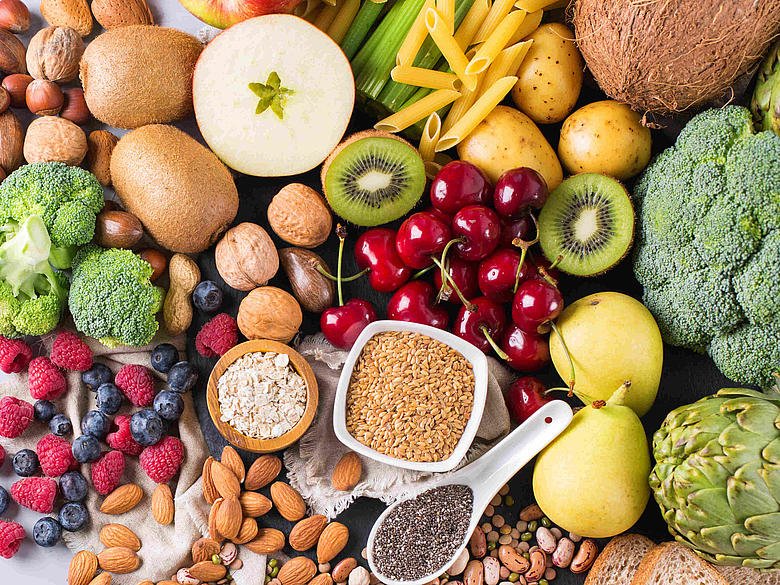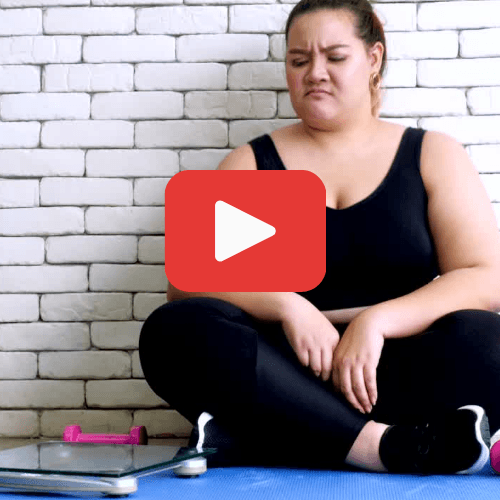Starting on a Weight loss Journey might sound daunting if you’re someone who doesn’t love to hit the gym. While physical activity has many positive benefits for your health, it’s just one piece of the puzzle regarding losing weight.
if You Don’t Want to Read The full Article Watch the Video Below
Luckily, if you cannot make it to the gym, there are many other ways to lose weight within a Realistic timeline that don’t involve lifting dumbbells or jogging on the treadmill. No matter what reason you have for starting a weight loss journey, implementing a few changes in your daily routine can help you on the path to better health, primarily if you’ve found it Challenging to lose weight in the past.
Can You Lose Weight Without Exercising?

The simple answer is yes—there are many weight loss strategies that can be effective, and exercising is only one of them. Exercising in some forms, like strength training, can be a helpful tool to help you speed up your metabolic rate and burn some extra calories, but there are other simple practices you can implement into your lifestyle that can also give you an extra boost. Making changes to your diet, getting adequate sleep, and better understanding how stress is impacting your body can all be helpful in supporting weight loss for some people.
If you are looking for the fastest way to lose weight without exercise, it’s important to note that while Weight loss drugs like Ozempic and Wegovy have recently risen in popularity for their often quick results, there are still certain safety concerns being revealed by researchers as it pertains to their use. An October 2023 study found that drugs like Ozempic may lead to serious digestive problems, and other research has found that those who lose weight using GLP-1 drugs often regain it after stopping the medication.
Luckily, there are various daily lifestyle changes you can implement that can help support sustainable, long-term weight loss. So, whether you’re unable to exercise or you simply would prefer not to, here are 20 of the best ways to lose weight without exercise.
20 Ways To Lose Weight Without Exercise Best Health tips
( 1) Start Your Meals With Protein

Breaking your overnight fast with a source of high-quality protein has been shown to help with satiety and blood sugar management. It may even help with diet quality in individuals with obesity. Pairing carbohydrates with protein can also help to curb glucose spikes when eating, which is especially important after a fast since the protein helps slow the release of glucose from the carbohydrates into your bloodstream.
Keeping your glucose regulated may be helpful for weight management since insulin resistance may lead to weight gain over time. Focus on including high-quality protein sources in your diet, such as poultry, fatty fish, plain Greek yogurt, grass-fed meats, tofu, and tempeh for optimal blood sugar response.
Apart from preventing glucose spikes after a fast, there are many studies out there to demonstrate the connection between high-protein diets and weight loss. Protein is essential for muscle-building, promotes satiety throughout the day, and may help reduce excessive snacking.
( 2) Watch Your Portion Sizes

If you’ve struggled with your weight while eating a nutritious, whole foods-based diet, your portion sizes might be why you haven’t seen the number on the scale decrease. While this may seem obvious, nutritional information on products can sometimes be misleading or difficult to interpret. Studies have shown that exposure to large portions can lead to weight gain, so focusing on portion control and how much food is on your plate is essential.
If you Don’t Want to Read The Full Article Watch the Video Below
Individuals who struggle with obesity can benefit from learning how to independently judge portion sizes when seeking to lose weight. Using smaller plates is one simple way to make portion control a little easier.
Table of Contents
( 3) Stay Hydrated

Drinking enough water to support adequate hydration has been associated with weight loss through a few mechanisms. Some studies show that drinking water can help reduce calorie intake, making weight management that much easier.
Remember that staying hydrated isn’t only beneficial for weight loss. It also can help reduce your risk of developing conditions like diabetes, cancer, Alzheimer’s, and many other chronic diseases. For tips to help you get adequate fluids throughout the day, check out our article on the importance of proper hydration.
(4) Reduce Added Sugar

It might be one of the most common things you’ve heard if you have tried dieting for weight loss, and for a good reason. Excess sugar intake is one of the leading causes of obesity in the United States. Although eating junk food and sweets can be enjoyable, these foods are often high in calories, added sugar, and trans fat, meaning that cutting them out of your diet can significantly impact weight loss and overall health.
Fortunately, limiting extra sugars and processed foods with saturated fats has many other benefits besides weight loss. These dietary changes may support healthier skin and better triglyceride and cholesterol levels as well as help prevent other chronic conditions.
( 5) Consider Testing Your Caffeine Tolerance

Studies on the metabolic impacts of caffeine or coffee are conflicting. While some studies suggest that regular caffeine intake may be harmless or even helpful for some people, other studies show that it may cause elevations in cortisol and perhaps contribute to some other hormonal imbalances for certain people.
For those with diabetes, caffeine may make glucose control more difficult. However, it may slightly lower the risk for diabetes in those who aren’t diabetic. Caffeine has a dose-dependent effect, which means that how it affects you may depend on the dose. Consider testing out different amounts or even taking a more extended break to assess how your body might respond to these different elements.
( 6) Create a Symptom and Food Log

Sometimes difficulty losing weight can be tied to underlying health imbalances and concerns. Tuning into how you feel is every bit as important, if not more important, than a number on a scale. Being able to identify symptoms of concern may help increase your awareness of how daily habits might be impacting how you’re feeling.
Symptoms such as fatigue, anxiety, digestive upset, and poor sleep can sometimes offer added clues to metabolic imbalances. Tracking your personal symptom patterns over time, especially as you try new and different dietary approaches, can be an incredibly powerful tool to support you on your wellness journey.
Focusing on mindful eating and even using one of the various weight loss apps on the market can also help you create a schedule around eating and spot patterns more easily. Consider working one-on-one with a personal nutritionist if you’d like more personalized support in this area.
(7 ) Avoid Sugary Drinks Like Soda or Juice

We’ve already talked about the importance of reducing added sugar, but this one bears repeating. “Don’t drink your calories” is a classic expression repeated in the weight loss space, and unfortunately, this includes soda, juice, alcohol, and most sugary drinks.
If you’re cutting out some extra calories to help with your weight loss, these drinks do not provide much (if any) nutritional value and can be high in calories, which is why they are commonly referred to as “empty calories.” By replacing these drinks with water, you’ll not only be able to reap the health benefits of being adequately hydrated, but you’ll also cut out some extra sugar and decrease the amount of empty calories you may be used to consuming.
(8) Get Plenty of Sleep

Sleep is vital for many aspects of your health, including blood pressure, immune health, cognitive function, diabetes risk, cardiovascular disease, and more. That’s why it’s no surprise that insufficient sleep can have a negative impact on individuals with obesity.
Chronic sleep deprivation can also make other weight-loss tactics less effective over time, which is why getting plenty of rest is one of the crucial foundations of healthy weight loss. Prioritizing sleep by heading to bed 30 minutes to an hour earlier each night is a great way to get started.
(9) Eat More Non-Starchy Vegetables

Including lots of non-starchy vegetables in your diet is rarely bad (as long as you tolerate them), and it’s proven to be particularly beneficial when it comes to weight loss. Studies have shown that increasing vegetable consumption led to measurable weight loss in healthy individuals and also helped lower the risk of weight gain.
Vegetables are full of nutritious vitamins, minerals, and fiber and are generally low in calories, making them an excellent healthy snack for people looking to lose weight. Try pairing carrot or bell pepper slices with protein like hummus for a quick and satiating snack.
(10) Limit Alcohol Consumption

Alcohol can lead to inflammation in the body and is another common source of empty calories. It has also been linked to overeating, so it’s only natural that limiting your intake of beer, wine, and spirits can be beneficial for weight loss.
Studies have shown that reducing alcohol consumption was linked to weight loss in overweight individuals. At the same time, excessive alcohol intake may also be a risk factor for obesity, so it’s best to limit your drinks if you’re on a weight loss journey.
(11) Use Healthier Cooking Ingredients

Swapping out unhealthier fat options for healthier cooking alternatives like olive oil, avocado oil, or coconut oil can be helpful for weight loss and have a range of other positive health effects. While all cooking oils are high in calories and fat, olive oil and coconut oil may have healthier effects on cholesterol levels and have no significant associations with increased mortality, unlike options like margarine.
One study among women with breast cancer found that a diet enriched with olive oil brought about more weight loss than a standard low-fat diet, showing the positive association of this type of oil on health. Facebook
(12) Eat Without Distractions

If you’re someone who is always watching TV with dinner or looking at your phone while you eat lunch, you may want to try putting your devices down during meals. Research shows that distracted eating may lead to overeating, which is linked to weight gain.
That’s why mindful eating, or eating slowly can be beneficial when it comes to weight loss. Studies suggest that eating your food slowly can lead to increased satiety, or make you feel full faster. Aim to chew your food thoroughly and pace yourself while eating to support your weight loss journey.
(13) Limit Emotional Stress

Many of the items in our list so far have to do with limiting stress of many kinds. Stress can come in the form of nutrient imbalances, poor sleep, and even alcohol consumption. But stress also comes in the form of psychosocial or what some people consider an “emotional” form.
When you experience high-stress levels or chronic stress of any kind, you may notice that you feel physically sick. Chronic stress is a risk factor for obesity and type 2 diabetes, among many other health concerns – which is why practicing relaxation techniques can be beneficial.
Stress can have a direct impact on your glucose levels and can even lead to insulin resistance over time. Taking steps to reduce stress can benefit more than just weight management. It can also help your mental health, support better sleep, and reduce your risk for chronic health conditions.
(14) Cook More—Carry Out & Dine Out Less

Ordering take-out may be more convenient, especially if you’re busy during the week or don’t enjoy cooking. Unfortunately, many restaurants use excess butter, oil, and fat, adding many extra calories to your meal. There’s also a chance you’ll eat larger portions than usual, often exceeding recommended serving sizes.
Because of this, studies have found a link between eating home-cooked meals frequently and better overall health, including lower cholesterol, better metabolic health, and a lower risk of obesity. Eating at home more frequently can help you better control your calorie and macronutrient intake, may help with weight control, and even save money.
(15) Weigh Yourself Regularly

This may not seem like a weight loss tip, per se. But it is! When you set realistic goals, you are more likely to stick to your path and avoid feelings of overwhelm that might lead to giving up before you hit your goal. Keep in mind that it’s normal for your weight to fluctuate by a few pounds depending on factors like time of day, hydration level, and exercise.
If you’re using a scale to track your progress, try to weigh yourself at an interval that doesn’t feel too triggering and focus on how you’re feeling first and foremost. Keeping track of your weight changes may be helpful but over-focusing on weighing yourself or weighing yourself too often may just add more stress to your plate.
(16) Stand, Stretch, & Walk During the Day

Taking time to stand up often throughout the day, get some extra steps in, or even stretch have also been linked to increased weight loss. Standing burns more calories than sitting; while it may sound insignificant, these calories can add up over time.
Walking and other activities you may do throughout the day have been shown to be positive for overall health and can play a big role in weight management over time by keeping you moving and getting your heart rate up.
(17) Prioritize Your Fiber Intake

There are numerous health benefits of fiber, including supporting gut health, blood sugar regulation, and cardiovascular health. But not only that, including an appropriate amount of fiber in your diet can even support healthy weight loss.
Including fiber-rich foods in your meals can keep you satiated and feeling full for longer, and it can help reduce inflammation in the body, which is linked to weight gain. The Dietary Guidelines for Americans recommend consuming 22 to 34 grams of fiber per day depending on factors like age and sex. Good sources of fiber include whole grains, non-starchy veggies, beans, legumes, nuts, and seeds.
Bonus tip: Eat your fiber first alongside your protein and before your carbs to help slow your body’s digestion of any carbs or sugars in your meal to help keep your blood sugar balanced.
(18) Focus on Whole Foods and Reduce Ultra-Processed Foods

Eating a balanced, whole foods-based diet has many potential health benefits, one of which is weight loss. Whole foods are nutrient-rich and promote satiety. When you focus on whole foods, you may naturally eat fewer simple carbohydrates, ultra-processed foods, and added sugars that can lead to weight gain and overeating. Here are a few examples of whole food sources from each macronutrient group to try adding to your diet.
Whole Carbohydrates
Focus on red or sweet potatoes, low-glycemic fruits, vegetables, whole grains like quinoa and steel cut oats, beans, and legumes.
Whole Proteins
These can come from chicken, fish, eggs, plain Greek yogurt, grass-fed meats, and tofu.
Whole Fats
Try to include a variety of foods such as avocados, nuts, seeds, fatty fish, and olives. Most animal proteins also contain whole sources of fat.
(19) Create a Plan for Emotional Eating

Emotional eating is often associated with weight gain. If you find yourself using food to cope with emotions or want to cut down on snacking throughout the day, creating a meal plan and schedule that you can stick to is a great way to hold yourself accountable.
You may also try keeping a food journal and keeping track of the emotions you feel when you experience cravings to help you explore some deeper motivators driving your meal choices.
(20) Utilize a Standing Desk

Being sedentary has several negative health effects, and as we already know, standing more often throughout the day can be beneficial for weight loss. If you have the option, trying out a standing or height-adjustable desk is just one way to spend less time sitting if you have a sedentary job.
One study found that using a standing desk didn’t significantly impact work performance, meaning that this alternative to sitting might be helpful to try. Standing desks may also support lower blood pressure and less lower back pain. However, more research is still needed to determine the correlation.
1. Eat a Balanced Diet
Not all foods are created equal. So making sure you eat a well-balanced diet is an important way to lose weight without exercise.
“Ensuring a balance of lean proteins, complex carbohydrates, and healthy fats can help prevent hunger,” says Amy Shapiro, a registered dietitian and the founder of Real Nutrition in New York City. “I like chicken, ground turkey, seafood, pork, beef, tofu, and tempeh for protein, and complex carbohydrates like whole grains, whole wheat pasta, and potatoes. Healthy fats like olive oil, avocado oil, nuts, and seeds can also help maintain satiety.”
It’s also essential to keep your pantry well stocked with your favorite fiber-rich foods. “Having enough fiber from fruits and vegetables helps you fill up,” says Shapiro. “Adding balanced snacks with both protein and fiber in between meals will also prevent hunger and overeating and boost energy. Some healthy snack ideas include — but are not limited to — nuts, seeds, nut or seed butter, fruits, veggie sticks, yogurt, hummus, and jerky.”
2. Practice Portion Control
According to Shapiro, a good guideline is to fill half your plate with fruits and vegetables, a quarter of your plate with lean protein, and a quarter of your plate with complex carbohydrates.
“Portion control is very important and has a different definition for each person, but everyone trying to lose weight should have a basic understanding of what one portion looks like,” says Shapiro. “Ensuring sufficient fiber intake can make you feel full longer, balance your blood sugar, and help you avoid excessive consumption of other foods. I recommend reaching 25 to 40 grams of fiber per day.”
Shapiro also advises eating adequate amounts of protein. Consuming at least 21 to 30 grams of protein per meal, or 1 gram of protein per pound of your ideal body weight per day, will help you stay full longer between meals, since protein takes a long time to digest. This macronutrient is also important for helping to maintain lean body mass, which helps boost your metabolism as you age. | Home
3. Drink More Water
You might be afraid that drinking too much H2O can lead to excess water weight. Yet research shows that staying well hydrated is actually one of the best ways to reach your goal weight. According to a study, increasing water intake improves ingestive behavior, metabolic function, and body weight regulation. This ultimately results in more weight loss across the board.
“Proper hydration is one of the easiest but most often overlooked steps in weight loss,” says Shapiro. “We are made up of about 60 percent water, and water is essential for energy. Drinking enough water plays a role in weight loss through reduced calorie intake and increased breakdown of fat.”
4. Get More Rest
If you’re debating whether to stay up late to squeeze in an extra workout or turn in early, you may be surprised to learn that getting a good night’s sleep is essential for weight loss.
“If we are sleep-deprived, we always feel some degree of fatigue or tiredness,” says Dr. Garcia. “That can change how our brain thinks about food cravings. We’re usually more likely to crave processed, sugary, salty things when we don’t get enough sleep. So sleep is very important for losing weight. It’s also important for energy and focus in every other part of our lives.”
5. Reduce Your Stress
Chronic stress can be a big roadblock to reaching your weight loss goals. So try incorporating self-care into your daily routine whenever possible. Do whatever makes you feel good, whether it’s meditation, yoga, or simply taking a walk outdoors.
“Increased levels of stress hormones like cortisol or adrenaline can affect blood sugar, which affects how your body hangs onto weight,” says Garcia. “Of course, we can’t always control stressors. But if stress is always present, it’s very difficult for the body to say, ‘Oh, yes, you’re eating less. Let me lose this weight because you’re doing things perfectly.’ Stress is not an easy thing to turn on and off. It’s really more about managing it, not solving stress, on a consistent basis.”
6. Avoid Fad Diets
You may feel like you’ve tried every fad diet under the sun. Chances are, none of them worked for you — or if they did, all the weight came back on once you stopped the diet.
“Following weight loss trends online is a common pitfall,” says Shapiro. “What works for others may not work for everyone. A lot of dietary trends for weight loss also lack scientific support. They may show results quickly in the short term, but they’re not sustainable in the long term.”
This is exactly why crash dieting rarely works for most people. “One of the biggest and most common pitfalls for weight loss is avoiding or severely restricting one food group,” says Shapiro. “The three macronutrients — carbohydrates, fat, and protein — are all important to maintain satiety, nutrition, and blood sugar in between meals. Making the right food choices in the right portions will lead to better results than avoiding one particular food group.”
Exercise for Overall Health
Although exercise isn’t always necessary for weight loss, it still plays an important role in your overall health. Getting your heart rate up with weightlifting or aerobic movement is a great way to de-stress and improve your cardiovascular health, mood, and sleep. So don’t cancel your gym membership just yet, even if you do start tweaking your diet.
According to the Centers for Disease Control and Prevention, a few of the many benefits that come with incorporating regular exercise into your routine include a lower risk of depression and anxiety; decreased risk of developing cardiovascular disease, diabetes, and cancer; as well as stronger bones and improved brain health, both of which become even more important as we age.
The Bottom Line
Losing weight doesn’t necessarily mean you need to spend countless hours running on the treadmill at the gym. But that doesn’t mean you should never lace up your running shoes or step on a yoga mat again either.
“It is possible to lose weight without exercise if you are just looking to lose pounds,” says Shapiro. “At the end of the day, you just need to create a calorie deficit to lose fat. However, without exercising, you will also end up losing muscle mass. This ultimately will make keeping off any lost weight more difficult since decreased muscle mass causes a decreased metabolic burn. Therefore, your calorie intake will have to be lower to maintain any weight loss.”
It’s also important to make sure you don’t set yourself up to fail before you get started, she adds. “Make sure you are really ready to take this journey,” says Shapiro. “Weight loss is not easy, and it is not fast. It does require committing to consistent lifestyle changes over time. Come in knowing this is a journey, but there is also a learning curve. Enjoy the small wins and don’t just look at the end goal. Be patient and find a team, whether it is a family member, a friend, or a professional to help you. Support and accountability are key here.”






